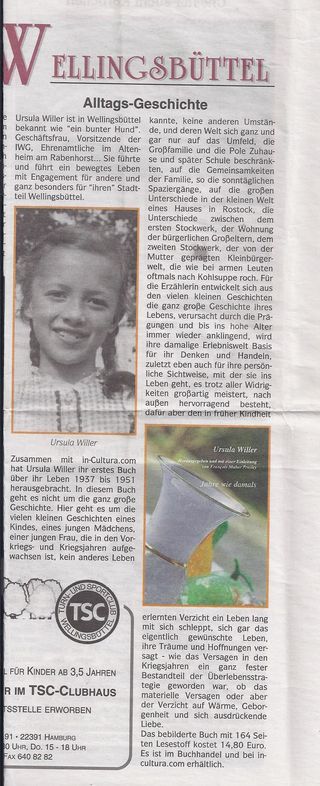Ursula Willer:Years like then 1935-1951

Author: Ursula Willer
Edited, edited and with an introduction by François Maher Presley
Published 2015, hardcover, A5, 164 pages, illustrated
Price: 14.80 EUR | Order
from the content
This book is not about the big story. The author Ursula Willer does not have this claim. This is about the many little stories of a child, a young girl, a young woman who grew up in the pre-war and war years, knew no other life, no other circumstances and whose world is entirely dependent on the environment The extended family and the Poles at home and later school were limited to the similarities of the family, such as the Sunday walks, to the great differences in the small world of a house in Rostock, the differences between the first floor, the apartment of the bourgeois grandparents, the second floor , the petty bourgeois world shaped by the mother who - “like poor people” - often smelled of cabbage soup. For the narrator, the very big story of her life develops from the many small stories, caused by the influences and reverberating into old age, her world of experience then becomes the basis for her thoughts and actions, and ultimately also for her personal point of view who goes into life, masters it brilliantly in spite of all the adversities, outwardly exists excellently, but carries with him the renunciation learned in early childhood with him for a lifetime, even denies the actually desired life, her dreams and hopes, like the failure in During the war years it had become an integral part of the survival strategy, whether material failure or the renunciation of warmth, security and expressing love.
Hurry







